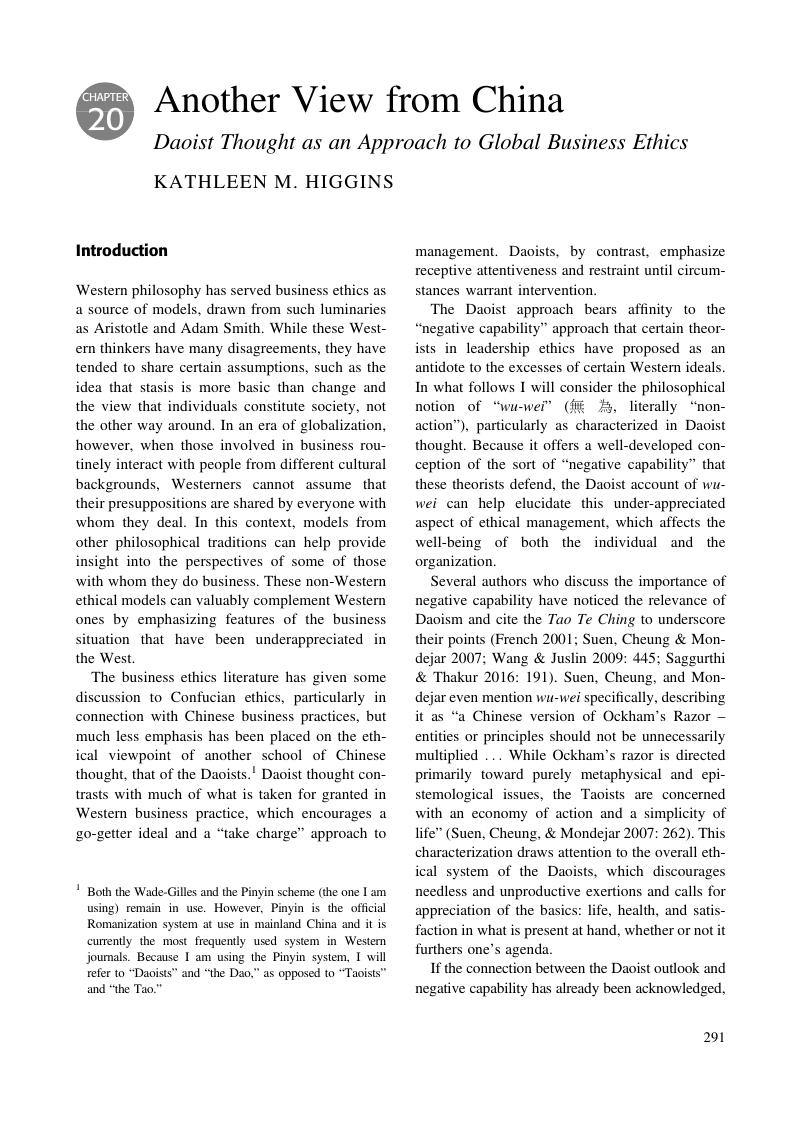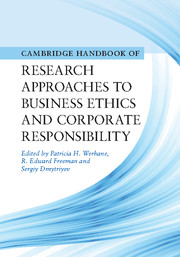Book contents
- Cambridge Handbook of Research Approaches to Business Ethics and Corporate Responsibility
- Cambridge Handbook of Research Approaches to Business Ethics and Corporate Responsibility
- Copyright page
- Contents
- Figures
- Tables
- Contributors
- Introduction
- Part I Philosophical Approaches
- Part II Empirical Approaches
- Part III A Researcher in the Spotlight
- Chapter 17 Social Construction as Background for Research in Business Ethics
- Chapter 18 A Pragmatist Approach to Business Ethics Research
- Chapter 19 Rethinking Right
- Chapter 20 Another View from China
- Index
- References
Chapter 20 - Another View from China
Daoist Thought as an Approach to Global Business Ethics
from Part III - A Researcher in the Spotlight
Published online by Cambridge University Press: 10 November 2017
- Cambridge Handbook of Research Approaches to Business Ethics and Corporate Responsibility
- Cambridge Handbook of Research Approaches to Business Ethics and Corporate Responsibility
- Copyright page
- Contents
- Figures
- Tables
- Contributors
- Introduction
- Part I Philosophical Approaches
- Part II Empirical Approaches
- Part III A Researcher in the Spotlight
- Chapter 17 Social Construction as Background for Research in Business Ethics
- Chapter 18 A Pragmatist Approach to Business Ethics Research
- Chapter 19 Rethinking Right
- Chapter 20 Another View from China
- Index
- References
Summary

- Type
- Chapter
- Information
- Cambridge Handbook of Research Approaches to Business Ethics and Corporate Responsibility , pp. 291 - 303Publisher: Cambridge University PressPrint publication year: 2017
References
- 1
- Cited by



